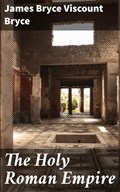In "The Holy Roman Empire," James Bryce, Viscount Bryce, offers a scholarly exploration of one of the most complex and enduring political entities in European history. Written during the late 19th century, Bryce'Äôs work is characterized by its rigorous historical analysis and lucid prose, making it accessible yet deeply insightful. The book delves into the Empire's intricacies, tracing its origins, development, and eventual decline, while skillfully situating it within the broader context of medieval and early modern Europe. Bryce employs a blend of narrative and argumentation that highlights both the Empire's political structure and its cultural significance, illuminating its influence on the shape of contemporary Europe. James Bryce, a prominent British statesman and historian, was profoundly interested in the relationship between historical governance and societal development. His experiences, including his tenure as British Ambassador to the United States, fostered a keen understanding of the interplay between law, politics, and cultural identity. It is this background that enriches Bryce's portrayal of the Holy Roman Empire, as he examines its legacy on notions of federalism and national identity. With its thoughtful analysis and engaging narrative, "The Holy Roman Empire" is essential reading for historians, political scientists, and anyone interested in the roots of European governance. Bryce'Äôs work invites readers to reflect on the implications of history for contemporary statecraft and identity, making it a timeless addition to any academic library.

